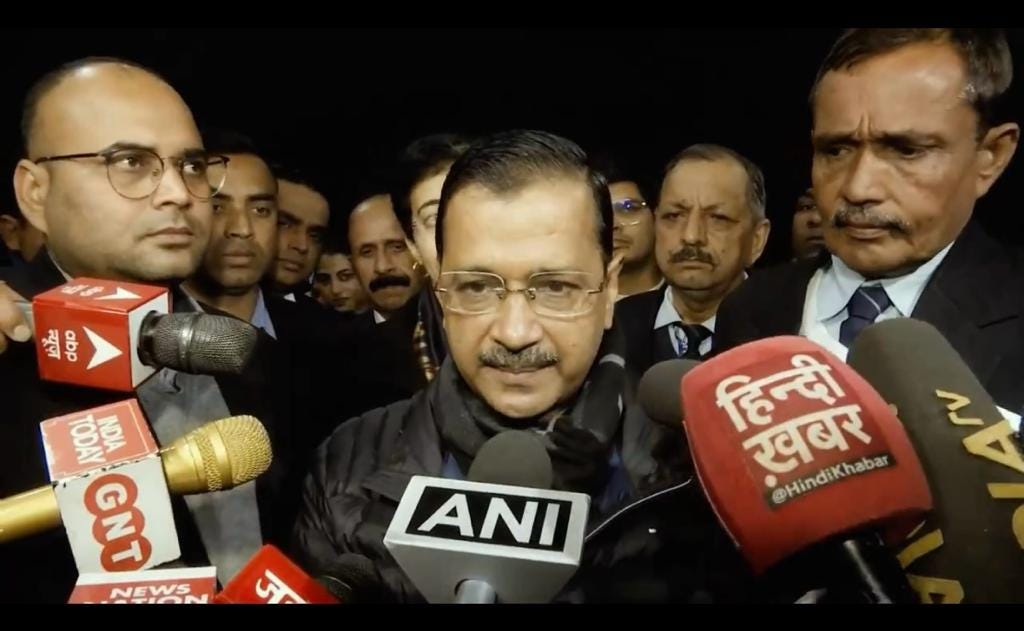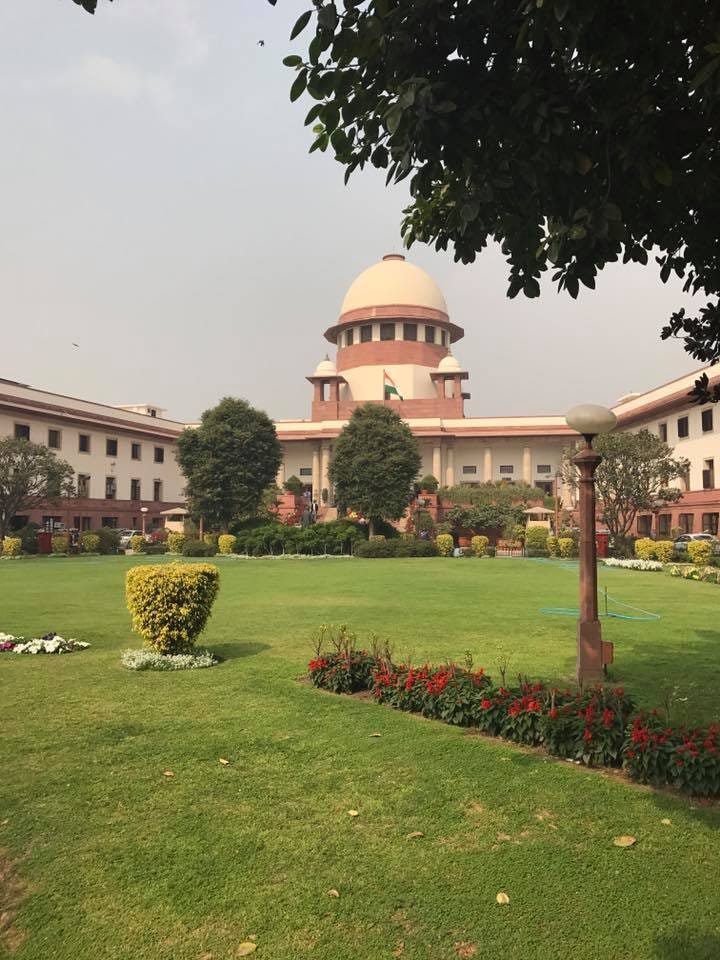Kejriwal-ED Legal Saga: Compliance, Arrest, or a Third Possibility?
Arvind Kejriwal Skips Fourth ED Summons, Alleges Political Conspiracy.
Arvind Kejriwal Skips Fourth ED Summons.
Delhi Chief Minister Arvind Kejriwal has once again refrained from complying with the latest summons issued by the Enforcement Directorate (ED), contending that it is both illegal and a part of a political conspiracy aimed at impeding his election campaign. This episode marks the fourth consecutive summons, scheduled for January 18th or 19th, that Kejriwal has chosen to avoid. The summons pertains to the ED's investigation into alleged irregularities within Delhi's 2021-22 Excise Policy, underlining the ongoing legal battle between Kejriwal and the ED.
Kejriwal, who also serves as the National Convenor of the Aam Aadmi Party (AAP), has consistently voiced several concerns regarding the summons, notably the ED's failure to clarify whether he is being summoned as a witness or a suspect, and whether the summons pertains to his role as the Chief Minister or as an AAP office-bearer. This protracted dispute has brought into question the stringent provisions of the Prevention of Money Laundering Act, 2002 (PMLA), the unwavering stance of Kejriwal, the autonomy of the ED, and the broader political implications of these legal confrontations. Speculation abounds in the public sphere as to whether this deadlock will culminate in compliance or arrest. However, our analysis suggests that it is unlikely to be either.
But first, the brief background. The readers who think they know enough of the sequence of past events and the stance of the various stakeholders, may choose to jump to our paragraph captioned “What Next?”
Kejriwal's Perspective
Kejriwal firmly maintains that the four summons issued by the ED are illegal and invalid. He contends that different courts have deemed such general, non-specific ED summons illegal in the past and subsequently quashed them. Kejriwal has expressed his concerns to the ED regarding the legality of these summons and asserts that he has not received a response from the central probe agency. According to him, these repeated summons are part of a political conspiracy aimed at his arrest before the upcoming Lok Sabha polls to obstruct his election campaign.
AAP's Objections
The AAP, in tandem with Kejriwal, has consistently raised objections to the ED's summonses, citing the lack of clarity regarding the nature of Kejriwal's involvement in the investigation. While AAP leaders have publicly echoed Kejriwal's assertions, they also reference statements from some BJP leaders who suggest that Kejriwal will be arrested. These references are used to bolster their argument that the ED is perceived as a "caged parrot" under the influence of the ruling party.
ED's Stance
The Enforcement Directorate's stance on the matter has remained undisclosed to the public, and their latest communication or summons to Kejriwal have not been made accessible to the media. Nonetheless, it is widely believed that Kejriwal has strongly objected to the language employed by the ED in a communication dated January 12. The inclusion of phrases such as "excuse," "extraneous reasons," "camouflage your real motive," and "intentionally disobeying your summons" in the ED's communication reportedly prompted Kejriwal to raise concerns about potential bias and prejudice against him.
BJP's Reaction
The Bharatiya Janata Party (BJP) has accused Kejriwal of displaying evasive behavior in response to the ED summons. While Kejriwal contends that the summons are invalid, the BJP underscores the importance of him complying with them, allowing the law to take its course. The BJP argues that Kejriwal has important questions to answer regarding the excise policy, and they find his reasons for skipping the ED summons quite flimsy. They express surprise that an individual who claims to champion transparency and due process is evading the summons, which can only contribute to the public perception of his potential complicity, if not guilt.
Legal Provisions
The dispute surrounding Kejriwal's summons sheds light on the stringent conditions for bail under the Prevention of Money Laundering Act, 2002 (PMLA). The Act contains a presumption against bail, placing the burden of proof on the accused to demonstrate their innocence. The requirement for the court to be satisfied that the accused is "prima facie NOT guilty" presents a considerable challenge, particularly when investigations are ongoing. The legal community has raised questions about the fairness and reasonableness of this procedure within the framework of Fundamental Rights, particularly Article 21 of the Constitution of India, but at the moment the constitutional validity of the same have been upheld by the Supreme Court.
ED Charge-Sheets and Allegations
It is essential to note that the ED has filed six charge sheets in the excise policy probe against 31 individuals and entities. The probe alleges that bribes worth 245 crore generated through the excise policy were used to fund the Goa assembly elections campaign. Notably, AAP members, including the former Deputy Chief Minister Manish Sisodia and Rajya Sabha MP Sanjay Singh, are among those accused. All the accused, including Sisodia and Singh, have consistently denied the charges, labeling the case as a "witch-hunt" and "political vendetta" orchestrated by the ruling party.
What Next?
The ongoing legal battle between Arvind Kejriwal and the Enforcement Directorate highlights the complex and contentious nature of money laundering investigations. While Kejriwal alleges a political conspiracy and the illegality of the summonses, the BJP insists on adherence to the law. The implications of this dispute extend beyond the individual case, raising broader questions about the legal framework and the balance between investigation and individual rights.
Open-ended and Hypothetical Questions:
In light of the ongoing dispute, what are the potential options available to Arvind Kejriwal and the Enforcement Directorate to break the logjam?
Let us address this issue in a question and answer format:
1. Will Mr Kejriwal comply with the summons?
Appears highly unlikely. After having taken such a firm, legal, and public stand, it will strengthen him, neither legally, nor politically, to appear before the ED.
2. Will Mr Kejriwal challenge the summons in the Delhi High Court, in exercise of its writ jurisdiction?
Given the fact that Mr Kejriwal has publicly stated that such non-specific summons are invalid and have been earlier quashed by the courts, this could be a logical way forward. However, an adverse decision, or denial of any interim protection or “no coercive measures” order will harm him politically as well as legally.
3. Will Mr Kejriwal seek anticipatory bail?
Highly unlikely. The provisions of anticipatory bail are exceedingly stringent, if not altogether non-existent. In the event, anticipatory bail is denied, or no interim protection given, it will virtually become a compulsion for the ED to effect an arrest.
4. Will the ED exercise its powers under section 19 of the PMLA to effect arrest?
Highly unlikely, in our opinion. Given the hyper-profile nature of the case, and the individual involved, any such precipitate step will only give credence to the rumours that the investigation is not totally independent.
5. Will ED approach the Special PMLA court to issue either bailable or non-bailable warrants?
Quite likely. However, in our opinion, the Special PMLA Court might choose to issue Mr Kejriwal a notice before straightaway issuing such warrants. This notice could then be contested by Mr Kejriwal before the trial court or the Delhi High Court in exercise of its writ jurisdiction.
This may lead to protracted litigation, which ED obviously does not want, as it will also delay, if not derail, the main Trial. Thus, ED will have to think very deeply and carefully before invoking this legal option.
6. Is there any other option with ED?
In our opinion, in case the compliance of the summons does not take place, the ED always has the option of filing a fresh or supplementary chargesheet/criminal complaint in the Special PMLA court, against AAP as a Political Party or a legal entity, as well as the office bearer de facto in charge of the affairs of the same, that would most likely be its National Convenor Arvind Kejriwal, leaving it for the Court to summon the accused and face trial.
From the ED’s perspective, this is has several advantages:
First of all, it avoids any potential and prolonged litigation based on the legality of its summons.
Secondly, it avoids the precipitate action of effecting arrest, which would have created far-reaching political ramifications, which might ultimately have benefited Mr Kejriwal, while making the Agency vulnerable to the allegations that its investigation was not independent, and that the arrest was a part of a political conspiracy.
Thirdly, once a chargesheet/a criminal complaint has been filed by the ED in the Special PMLA Court, it essentially becomes a matter between the trial court and the accused, allowing ED to recede in a subtle manner and avoid allegations of any political bias.
Fourthly, Mr Kejriwal would have lost a valuable opportunity to submit, on record, his version of the law and facts as well as his general defense at the stage of the inquiry/investigation, which he would have now be essentially waiving, owing to his successive episodes of non-appearance before the ED investigating officer.
Last, but not the least, this would essentially expedite the whole process because ultimately a speedy trial is what every accused is entitled to, and what every prosecutor wants.
Summing Up
In the realm of law and politics, unforeseen alternatives may emerge, but at present, it seems that if Mr. Kejriwal continues to defy the ED's summons that he deems illegal and invalid, the evolving legal scenario will inevitably culminate in the submission of a criminal complaint or charge-sheet in the Special PMLA Court
Be that as it may, truth and justice shall ultimately triumph.







Whenever one reads about someone summoned by government agency in print , immediate perception is that he or she is a suspect in some wrong doing. The reason their name is made public is because of their stature as elected person or prominence for other reasons.
The government agency sticks their neck out and carries burden or huge risk. They have to be 100 percent thorough in their homework while doing preliminary examination or investigation.
Most times the suspect seems to accuse the investigating agency of being biased against him or her due to their role as political opponent or him being too busy with other urgent matters to participate in investigation .
Here in US , you seldomly read anyone accusing government agency of being personal or politically motivated and much more importantly using pretense of being too occupied with other affairs to appear in person, if required.
I have only one question in the end .
Is ED truly an independent agency ?
If the answer is unequivocal yes then agency is failing to perform its functions.
A complete layman’s perception.